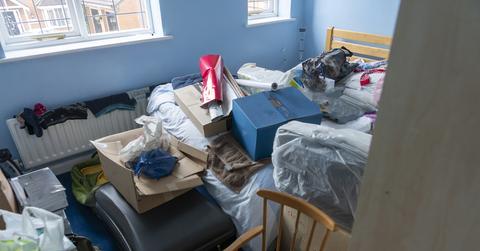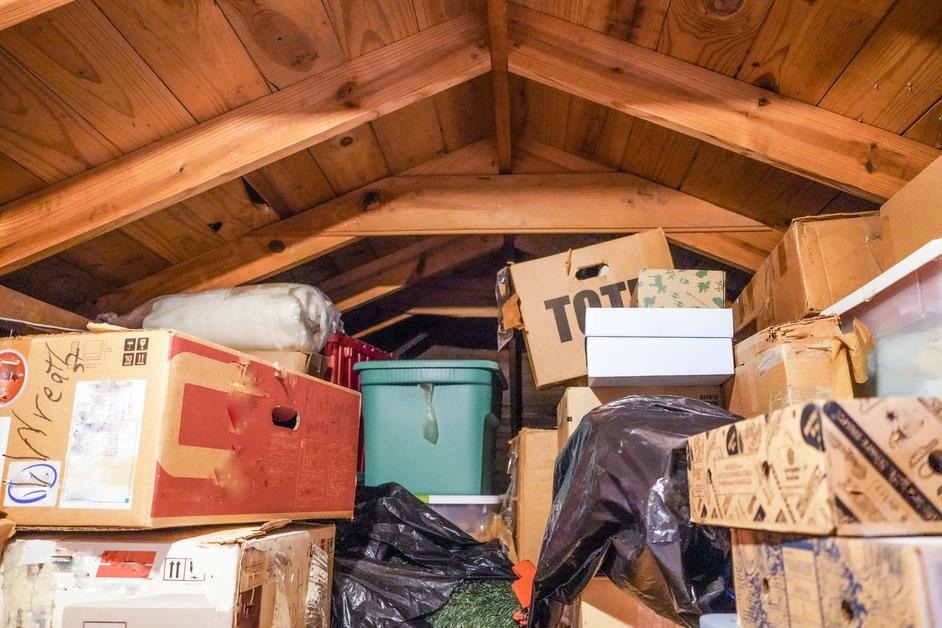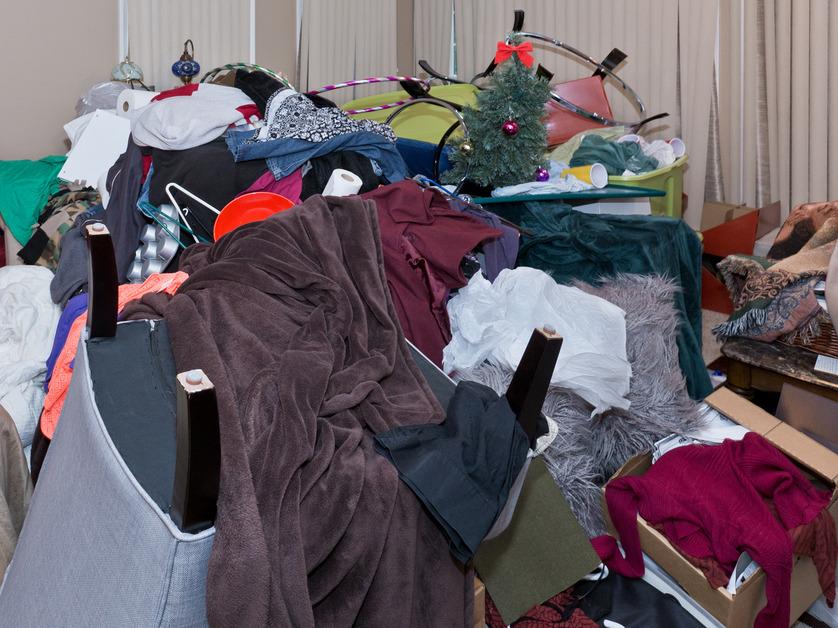Is It Clutter or Hoarding Disorder? Understanding the Mess, and When to Get Help
Published Feb. 2 2024, 4:40 p.m. ET

If you've ever moved houses or tried to pack for a trip, you may have noticed an excess of clutter in your home. Clutter is common among most people, and can happen for many reasons. However, hoarding is very different from clutter and is more than just having a messy room.
Those with hoarding disorder can experience an emotional response and extreme distress when letting go and not procuring items. Unlike clutter, this is a mental health issue and can negatively affect someone's hygiene, quality of life, and personal relationships. Here is how to tell the difference between clutter and hoarding.

What is clutter?
According to the International OCD Foundation, the DSM-5 defines clutter as “a large group of usually unrelated or marginally related objects piled together in a disorganized fashion in spaces designed for other purposes (e.g. tabletops, floor, hallway).”
Although clutter can be a sign of hoarding, there are many other reasons spaces can be cluttered. For example, cabinets, storage spaces, and attics are very common spaces of clutter but usually still allow living spaces to be used as intended.
According to the Cleveland Clinic, today's extreme consumer culture makes clutter more common than it used to be. Constant trends, advertising, and the influx of social media often make us buy more than we need and sometimes more than we have space for.

What is hoarding?
Hoarding is a medical disorder and is more severe than clutter. According to the Mayo Clinic, hoarding can be described as ongoing disorganized clutter because getting rid of and not acquiring these items causes distress. Even if the items hold very little value, such as trash, those with hoarding disorder can find throwing away these items very difficult.
According to the Cleveland Clinic, around two to six percent of people in the United States have hoarding disorder. Some symptoms of hoarding disorder include:
Uncontrollable need to save items, regardless of value
Abnormal stress when needing to throw items away
Withdrawing from personal relationships
Feeling unable to get rid of items
Spaces have become unusable from clutter
The constant worry of needing items in the future

There are many reasons someone could have a hoarding disorder, which include having a relative with the disorder, a traumatic life event, a substance abuse disorder, and another mental health condition.
Hoarding disorder can range in severity, but in some cases, it can lead to a buildup of items that can interfere with living conditions. Items can overtake areas so that areas such as kitchens, bedrooms, and bathrooms can become unusable. However, even at this point, those with hoarding disorder can find it hard to get rid of things, per the Cleveland Clinic.
According to CBC, the Frost Hoarding Scale is a good tool for determining whether you are dealing with hoarding or everyday clutter. This scale uses images of rooms that vary in clutter levels. Those who score high on the scale, usually at a six or above, could be experiencing hoarding disorder and could benefit from professional help.
Although this is a good guide, it is not a foolproof way to determine if someone is dealing with a hoarding disorder. If you are worried that a loved one is hoarding, it is a good idea to get professional help for guidance.
You can get support from places such as Hoarding Cleanup, which provides a directory of mental health providers and cleanup services.